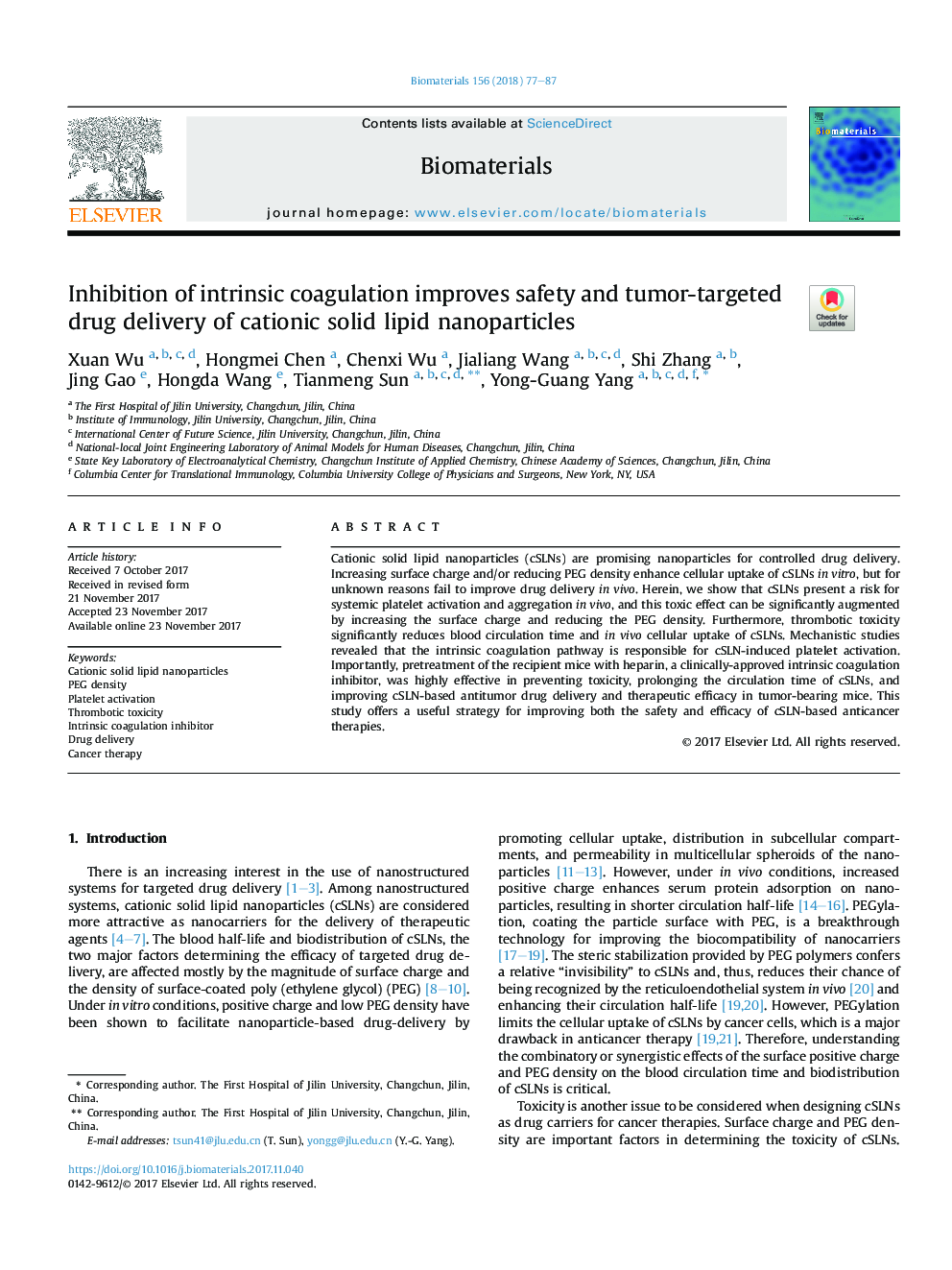| Article ID | Journal | Published Year | Pages | File Type |
|---|---|---|---|---|
| 6484727 | Biomaterials | 2018 | 11 Pages |
Abstract
Cationic solid lipid nanoparticles (cSLNs) are promising nanoparticles for controlled drug delivery. Increasing surface charge and/or reducing PEG density enhance cellular uptake of cSLNs in vitro, but for unknown reasons fail to improve drug delivery in vivo. Herein, we show that cSLNs present a risk for systemic platelet activation and aggregation in vivo, and this toxic effect can be significantly augmented by increasing the surface charge and reducing the PEG density. Furthermore, thrombotic toxicity significantly reduces blood circulation time and in vivo cellular uptake of cSLNs. Mechanistic studies revealed that the intrinsic coagulation pathway is responsible for cSLN-induced platelet activation. Importantly, pretreatment of the recipient mice with heparin, a clinically-approved intrinsic coagulation inhibitor, was highly effective in preventing toxicity, prolonging the circulation time of cSLNs, and improving cSLN-based antitumor drug delivery and therapeutic efficacy in tumor-bearing mice. This study offers a useful strategy for improving both the safety and efficacy of cSLN-based anticancer therapies.
Related Topics
Physical Sciences and Engineering
Chemical Engineering
Bioengineering
Authors
Xuan Wu, Hongmei Chen, Chenxi Wu, Jialiang Wang, Shi Zhang, Jing Gao, Hongda Wang, Tianmeng Sun, Yong-Guang Yang,
